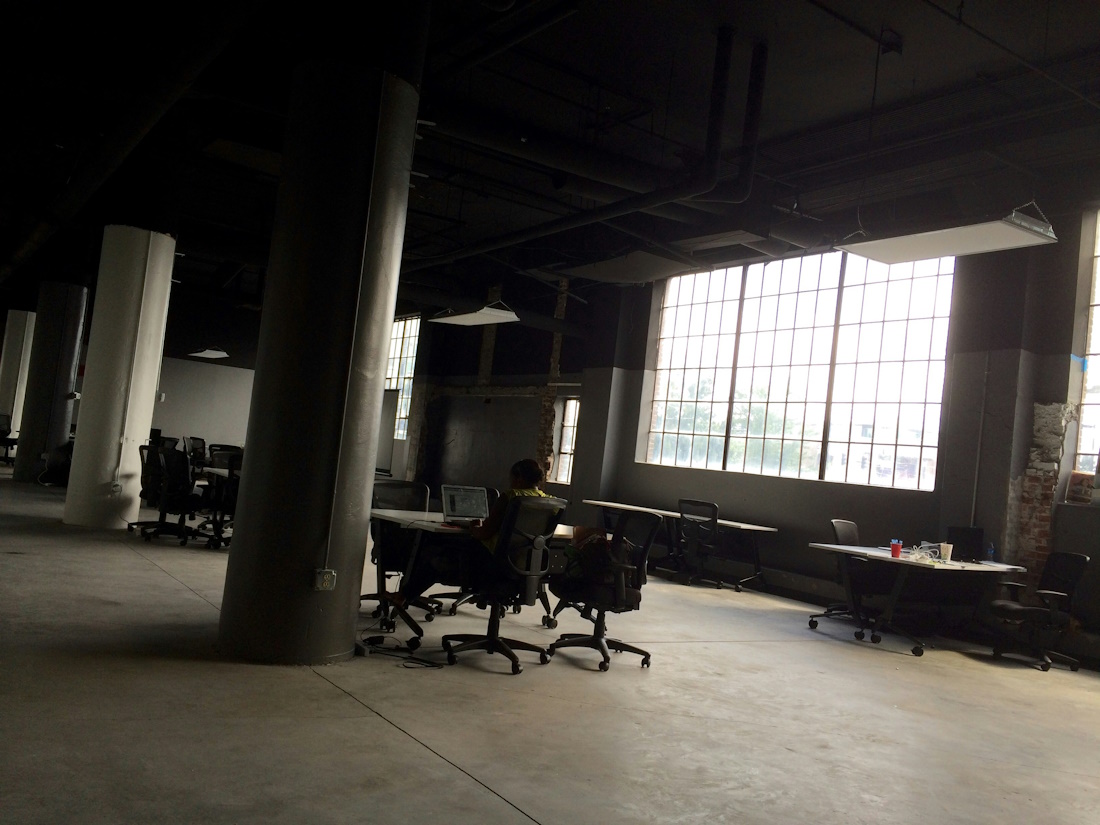Cellular offices are found amongst a wide range of office layout options. In our experience, we’ve discovered that they are popular with a variety of businesses.
In this article, we will delve into the pros and cons of renting a cellular office and compare it to an open-plan office. But first, what is a cellular office?
Defining a Cellular Office
“A cellular office” or “a cellular office layout” is an office floor which is partitioned into smaller office spaces or “cells” for smaller groups of employees. These partitions run from floor to ceiling, creating individual private offices.
Cellular offices differ from traditional open-plan office spaces, providing separate offices for different departments/teams within an organisation. The organisation can decide which offices are to be used by which team.
Can I Rent a Cellular Serviced Office?
Yes, you can rent a serviced office and adapt it to fit a cellular layout. Typically, most serviced offices are open-plan as standard, but they can be customised to suit individual companies.
Larger business centres, with more physical office space, are more likely to accommodate a cellular office requirement. These centres can be found anywhere in Central London, like Piccadilly or Holborn, and in other UK cities like Manchester.
Pros of a Cellular Office
Privacy and Confidentiality
Cellular offices offer privacy and confidentiality that other office layouts don’t. We have found that law firms and finance companies favour these layouts as they provide private spaces for departments that host confidential meetings.
Tasks that require handling sensitive information or deep concentration can also be done in private with maximum focus.
Reduces Noise
Cellular offices tend to provide a quieter environment that minimises disruptions. The walls help to reduce distractions from conversations, phone calls, and the “office buzz”. This can be especially useful for employees who need a quiet working environment.
Ability to Personalise Workspace
Personal touches within a workspace can positively impact employees' well-being and help make the space more welcoming. As each employee or group can personalise their own office, they can feel a sense of ownership of their workspace.
Customisation is essential for departments such as sales, where visual targets can be displayed, or HR, where a comfortable environment may be necessary for difficult conversations.
Clear Visual Hierarchy
For businesses where hierarchy is key, cellular offices can help to reinforce the organisational structure. A private office can provide a visual representation for employees to aspire to.
Cons of a Cellular Office
Higher Costs and Less Flexibility
To accommodate individual offices, a cellular layout requires more physical space than an open-plan layout, which can lead to higher rental costs.
Team expansions or realignments can also be challenging, sometimes requiring a complete reconfiguration of the offices.
Finding a cellular office layout can be more complicated than finding an individual serviced office space, as they are less adaptable. An office space broker can streamline this process and help you find the ideal space.
Limited Face-to-Face Communication
The physical barriers of a cellular office can mean fewer opportunities for spontaneous meetings or collaborations. In some ways, quick exchanges between colleagues can be less frequent and impact teamwork.
Some employees may prefer verbal communication over written communication or vice versa. Hence, a cellular office can make it difficult for some employees to communicate in a way that is effective for them.
Excess Space
Cellular layouts can often have excess space if employees work remotely or are on long-term leave. As we’ve mentioned, cellular layouts are more complicated to reconfigure at short notice. This can often lead to a lot of unused space and, in some circumstances, unused offices, which can be hard to occupy.
Differences Between Cellular Offices vs. Open-Plan Offices
Open-Plan Offices
• Cost-effective – They are often cheaper to rent than a cellular office as it is one office space which doesn’t require customisation.
• Increased Capacity – They can typically accommodate more staff within the same space as there is no need for partitioning, which can often create unusable space.
• Increased Collaborations – It is easier to engage or collaborate with colleagues in an open-plan office as there are fewer physical barriers.
• Distractions – The lack of walls can affect concentration levels and productivity. There is also less privacy in an open-plan space.
Cellular Offices
• Privacy – Less distractions and greater privacy due to the partitioning of the office space.
• Personalised Workspaces – Employees can feel a sense of office ownership by personalising their office spaces.
• Isolation – Cellular offices can sometimes feel isolating as fewer people are around. This can make it harder to collaborate, brainstorm ideas or even socialise.
• Visual Hierarchy - Cellular offices reinforce the workplace hierarchy by providing a separate workspace for senior team members.
Cellular office layouts are the perfect solution for companies that require privacy and confidentiality. The above pros and cons should give you an idea of what to expect from a cellular office, but evaluating what is best for your business and sector is crucial.








